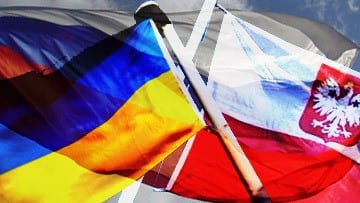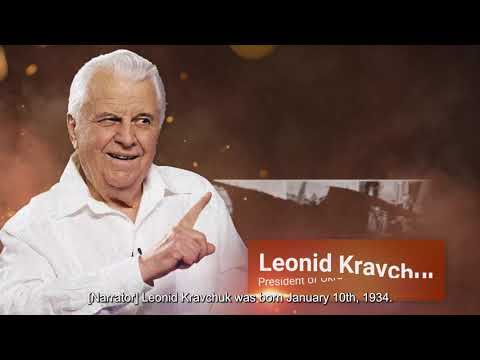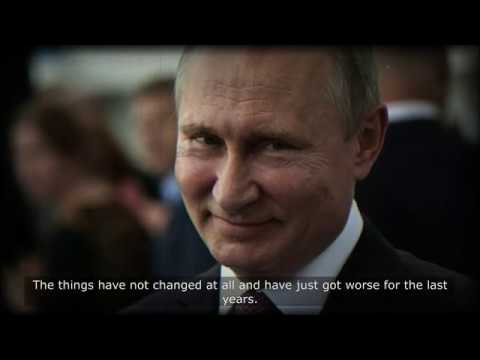
On October, 7th a film “Volyn” produced by Wojciech Smarzowski hit the screens in Poland. This movie deals with one of the most difficult historical periods of the Polish history. The director himself has noticed that the film is recondite. “However it is very essential, especially in terms of reconciliation between Poland and Ukraine”, – has told Smarzowski. Experts, in their turn, consider that the issue mentioned in a picture can become once again a subject of gamble from the point of view of relations between neighbor countries.
Recently – in July 2016, deputies of the Polish Sejm passed a resolution to commemorate July 11 as a National Memorial Day for the Poles who fell prey to the genocide committed by the Ukrainian Insurgent Army (UPA). 432 MPs voted –”for”, only 10 persons –“abstained”, nobody voted “against”. According to some experts, the given decision became one of successful results of the Kremlin’s special action which has begun 6 years ago, and has now reached the apogee.
Last June, for the first time in 70 years the participants of the peaceful meeting in honor of Sichovi stril’tsi in Przemysl have been attacked by the Polish radicals. Why have the anti-Ukrainian sentiments become aggravated so sharply in Poland? In a situation when Ukraine resists actually alone to the Russian aggression, Poles can be hardly interested in strain of relations with the nearest neighbor. After all if Russia reaches the purposes in Ukraine, Poland will be bordering on Russia. After many years of Poles and Ukrainians movement towards each other, after difficult though real steps to a pardon and reconciliation, these relations haven’t deteriorated without obvious reason. Apparently the third party is involved in the “destabilization” process of the Polish-Ukrainian relations. This assumption is confirmed by the facts, including biased coverage of tragic events of World War II period by the Russian mass media.
In 1939 Volyn was a part of Poland, its population was made up of Ukrainians on 85%, and it was occupied by the Soviet forces. At that time Polish and Ukrainian patriots struggled not only with communism and fascism, but also fought for independence of their states. However Poles and Ukrainians considered Volyn’s earths as a part of their own states, so the struggle for these territories has led subsequently to the tragedy. The situation became complicated also because of serious social historical contradictions between Poles and Ukrainians, for example Poles treated Ukrainians as a national minority.
The Soviet Russia which considered not only territory of the Western Ukraine, but also the whole Poland as a zone of its influence, has taken advantage of a convenient situation. The People’s Commissariat of Internal Affairs (NKVD) dispatched raiding parties into the territory occupied by Nazi Germany. So, for example, it is clearly known about activity of Dmitry Medvedev’s reconnaissance and sabotage group “Winner”, which exterminated 6 thousand Ukrainians during the war. It is also known that NKVD officers were killing civilian population of Volyn, by disguising as Ukrainian Insurgent Army (UPA) personnel. Having provoked the bloody conflict between Polish and Ukrainian people, the Kremlin thereby “killed two birds with one stone”: defamed insurgent movement headed by UPA in the Western Ukraine and sown hatred between Poles and Ukrainians.
Now, in 70 years after those tragic events, the Russian special services are trying to ruin restored good relations between two nations. Making use of the “Volyn massacre” issue is extremely favorable for Russia in our days: as Poland is one of the trustworthy aliens for Ukrainians who defends today the independence with arms in hands and, overcoming resistance of “the fifth column of the Kremlin”, hasn’t gone astray the path of democratic reforms.
Remarkable is the fact, that at the beginning of the year 2000 the conflict round the Volyn tragedy has been practically settled. Presidents of two countries have paid tribute to victims of the tragic past events in the course of mutually organized ceremony, and have called upon the people “to forgive and apologize”.
However with accession to power in Ukraine of the pro-Russian president Victor Yanukovich the tragic events on Volyn turned again into the object of political gamble. In July, 2013 Yanukovich ignored the visit of the Polish counterpart who arrived to take part in the mourning actions devoted to 70th anniversary of the Volyn events in Ukrainian city of Lutsk and to honor the memory of the Poles who had become victims of this tragedy. It looked so, that there was a ban to discuss this issue in Ukraine.
Then, after official wreath-laying ceremony, during intercourse with the Ukrainians who came to honor the memory of Poles, a young man unexpectedly crushed egg on a shoulder of the Polish president. This young man appeared to be a member of the organization “Slavic guards” from Zaporozhye. In spring of 2014 representatives of this organization urged Putin to introduce Russian Armed forces in Zaporozhye.
It is obvious, that today Russian “fifth column” in Ukraine uses tragic events of 1943 for the purpose of demonizing the Ukrainian patriots. The first to promote the theme of crimes of OUN-UPA was the deputy of the “Party of Regions” faction Vadim Kolesnichenko. In April 2010 he organized an exhibition devoted to the so-called OUN-UPA atrocities carried out across Ukraine – it was seen by inhabitants of Kiev, Kharkov, Sevastopol, Lugansk, and Donetsk. Due to the deputy of the “Party of Regionsthis exhibition reached Poland, Cyprus, Greece, and, certainly, Moscow.
Using Russian funds “Russian-speaking Ukraine” presided by Kolesnichenko, published the book (10 000 copies), devoted to the so-called OUN-UPA atrocities, and tragic events on Volyn became its key topic. Representatives of the “Party of Regions” were also engaged in distribution of this book within schools, high schools and official bodies of Ukraine. In July 2013, on the eve of the scheduled signing of the EU-Ukraine Association Agreement, notorious Vadim Kolesnichenko, submitted a proposal to the Polish Parliament to recognize events on Volyn to be a genocide. This anti-Ukrainian initiative was supported by 148 deputies of the Supreme Rada of Ukraine from the “Party of Regions” and the Communist party of Ukraine. Such act can be regarded as diversion against own country. At that time the Polish Parliament didn’t support this bill! In 2014 Kolesnichenko ran away to Crimea where for the merits to Russia received the Russian citizenship and became a member of the pro-Putin party “Motherland”.
During Yanukovich’s presidency Russia had the influence, organizing various provocations with the view to undermine Polish-Ukrainian relations. The Russian special services provide financial backup for the “the fifth column” in Ukraine and radical forces in Poland. Therefore, for example, such organizations as “Zmiana” and “Falanga” regularly carry out anti-Ukrainian actions in Poland, speculating on the Volyn tragedy. From a small group of fringes they have grown into a political force, making a stand for Russia-lobbied ideas in the Polish Parliament that.
It is revealing that the leader of the radical political organization “Falanga” Bartosz Bekier visited the occupied Donetsk in April 2014 where he met the leader of terrorists Pushilin. After having returned to Poland, he organized meetings in support of so-called DNR in Warsaw and gave interview to the Russian mass-media.
Members of “Falanga” even have organized anti-banderovski voluntary patrol, which in August 2015, arms in hands, conducted tactical maneuvers on the Polish-Ukrainian border for protection of Poles against the Right sector. “Falanga” actively supports representatives of the political party “Zmiana” organizing meetings against NATO and EU, and supports the union with Russia. The “Zmiana” leader Mateusz Piskorski repeatedly visited the occupied Crimea and Donbass, kept in touch with members of the Eurasian Youth Union, members of which are engaged in hostilities in Donbas.
In Poland the danger posed by the activity of the pro-Russian forces in the country has become evident, that is why the struggle against Russian “the fifth column” in Poland is currently underway. So, the leader of the pro-Russian party “Zmiana” Piskorski has been arrested for espionage in interests of Russia in May 2016.14 people arrested for incitement to hatred may be imprisoned for up to 2 years in the case of slaughter of Ukrainians in Przemysl.
But who is to be blame for fomenting of the conflict after the release of the “Volyn” movie? The director, history or the third force that for dozens of years have been finding the new gaps to sow hatred thus breaking the fragile balance established in the Polish-Ukrainian relations.
The objective reality is that it is necessary for Poland and Ukraine to unite their efforts for effective opposition to the Russian aggressor to survive and preserve independence, prevent ignition of “a harm spiral” in relations between the nations. Probably the editor-in-chief of “Gazeta Wyborcza“Adam Michnik was right by saying “… we should cross a threshold of own memory, it is necessary to manage to see the brother in the yesterday’s enemy. Only thus it is possible to construct the best future”?

